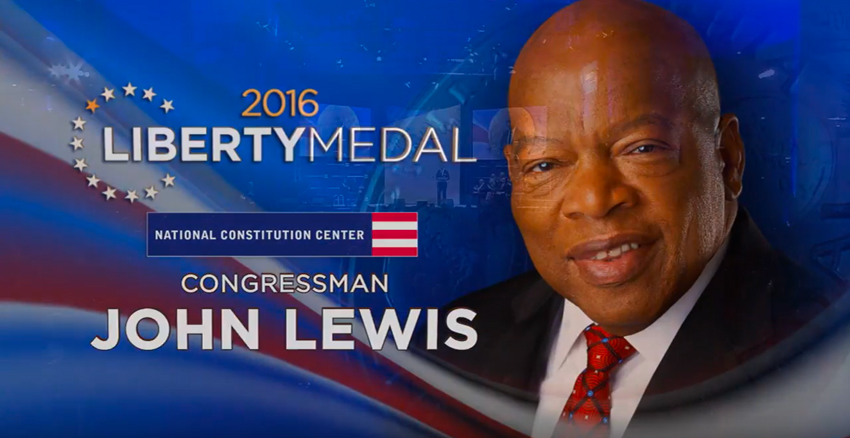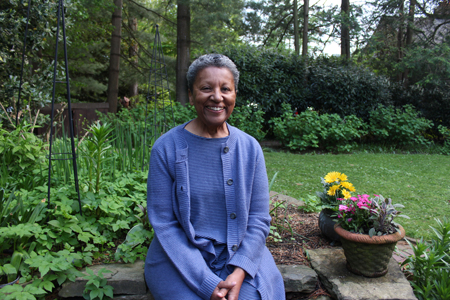By Kendal President and CEO Sean Kelly
July 29, 2020—In September 2016, John Lewis was awarded the National Constitution Center’s Liberty Medal in Philadelphia. As we all know now, in the wake of his passing, John Lewis had an esteemed career in the United States Congress, serving 17 terms on behalf of his constituents in Georgia and, as many would say, serving as “conscience” to the entire body over his tenure.

Beyond his role in government, he is even more broadly known as an American hero, having “fought peacefully” (which may sound strange, if not impossible to some) against segregation in an effort to see every single person, regardless of the color of their skin, honored for who they are and what they might become.
In large part because of his conviction and bravery, surely John Lewis received many accolades over his life of service. Why then, might you ask, do I point out this late summer night in Philadelphia where John Lewis received a prestigious, but maybe not so well known award? (By the way, the Liberty Medal has been given to other important figures in our history, including past presidents, the Dalai Lama, Mikhail Gorbachev, Sandra Day O’Connor, Malala Yousafzai, Thurgood Marshall, Steven Spielberg and Colin Powell, to name a few.)
Well, the fact of the matter is that on this night, which I remember, I was “stood up” by a friend and now former Board Chair at Kendal, Joan Countryman, who instead of keeping our scheduled meeting to have a late day coffee and go over plans for upcoming meetings, rightly took up a special invitation from John Lewis to be with him on this night. An invitation to stand with John Lewis as he received this award. An invitation to be inspired by the man and the moment. An invitation to be admired herself by the honoree and so many friends in common who’d fought for what they believed in; who demanded to be heard; and who peaceably and so powerfully made change, for the greater good.

Former Kendal Board Chair and educator Joan Countryman was and is a hero in our midst .
Joan Countryman, was and is a hero in our midst for so many reasons. As a lifelong educator and leader, she’s given incredible inspiration to people from all walks of life, for generations. Inspiration to understand what is possible for every person regardless of her color or standing, so much so that Joan was tapped to lead the planning and creation of Oprah Winfrey’s Leadership Academy for Girls in South Africa, which opened in 2006.
I’m so grateful to know Joan and, in particular, in that moment in 2016 for her having inspired me to learn a little bit more about John Lewis. I remember first among the things that I was most captivated by about John Lewis’ legacy, the Freedom Riders. John was one among the 13 original Freedom Riders — seven of whom were white and six of whom were Black. They were together determined to ride from Washington, D.C., to New Orleans, in an integrated fashion in 1961. To say “determined” and in an “integrated fashion,” belies the courage and commitment of these Freedom Riders, who endured beatings, arrests and disrespect all along the way for sitting next to one another on a bus.
Although I’m disheartened by the idea that black people were so discriminated against in that era and beyond (and similarly disheartened by the violence that still occurs), I’m moved by the idea that there were Black people and white people working together as Freedom Riders. In a way, this correlates with what has been widely seen as a more fully integrated response to the George Floyd murder back in June. It’s been widely noted this time, protests are longer lasting and far more diverse, with people of many colors standing arm-in-arm to confront racial injustice and induce change in our time.
In this simple correlation I also find inspiration and hope that we might be so bold as to take what we’ve learned from our history and the legacy of heroes like John Lewis and make a difference — a difference that will manifest in an ever more powerful culmination of our personal and organizational values, our Kendal values of integrity, equality, community and peace. Yes we can, and yes we must.
